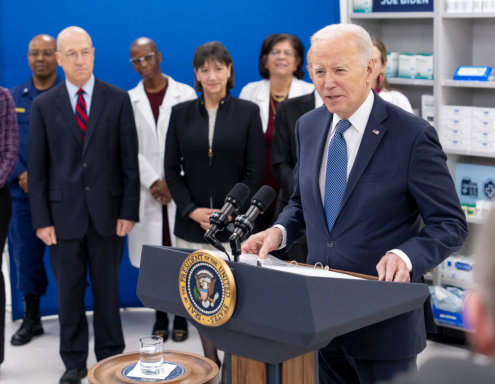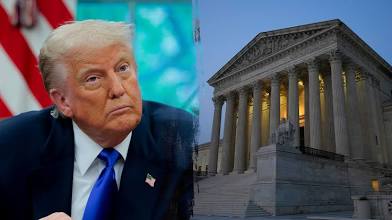Divided Supreme Court blocks funding for religious charter schools

The Supreme Court on Thursday rejected a plea to require state charter school programs to fund religious schools, an unexpected setback for social conservatives who had won a string of cases expanding sectarian involvement in public education.
The Court was divided 4-4 on the case, with Justice Amy Coney Barrett recusing herself. The result was that the justices upheld the Oklahoma State Supreme Court’s decision that for St. Isidore of Seville Catholic Virtual School in Oklahoma City to receive public funds would be unconstitutional.
Oklahoma has argued that providing state funds for religious charter schools violates the First Amendment. The Supreme Court issued a one-sentence ruling upholding the lower court’s decision, saying only: “The judgment is affirmed by an equally divided Court.”
The Oklahoma Statewide Virtual Charter School Board approved St. Isidore’s contract request in June 2023, making them eligible to receive public funds. The school agreed that it would be free and open to all students “as a traditional public school,” and would comply with local, state and federal education laws.
But St. Isidore also indicated that the school “fully embraces the teachings” of the Catholic Church and participates “in the evangelizing mission of the church.” Its ability to receive state funding was later blocked by the Oklahoma Supreme Court, which ruled that using the funds for a religious school was in violation of the Establishment Clause of the First Amendment.
In more than two hours of wide-ranging oral arguments last month, justices appeared split along ideological lines over whether to allow St. Isidore to become the first religious charter school in the U.S.
The justices focused on two questions during the oral arguments: First was whether charter schools should be treated as public schools, which are considered extensions of the state and therefore subject to the Establishment Cause and its ban establishing or endorsing a religion; or if the school should be considered a private entity or contractor, which was the argument made by St. Isidore.
The second question was whether Oklahoma’s actions violated the Free Exercise Clause of the Constitution, by placing what the school argues is an undue burden on its religious mission.
The ruling is a break in the line of wins that social conservatives have been getting from the Supreme Court over recent years. Outcomes have been shifting in a more conservative direction, but while the liberal block on the Supreme Court almost always stays together ideologically, conservatives on the court often vote with their liberal colleagues.


